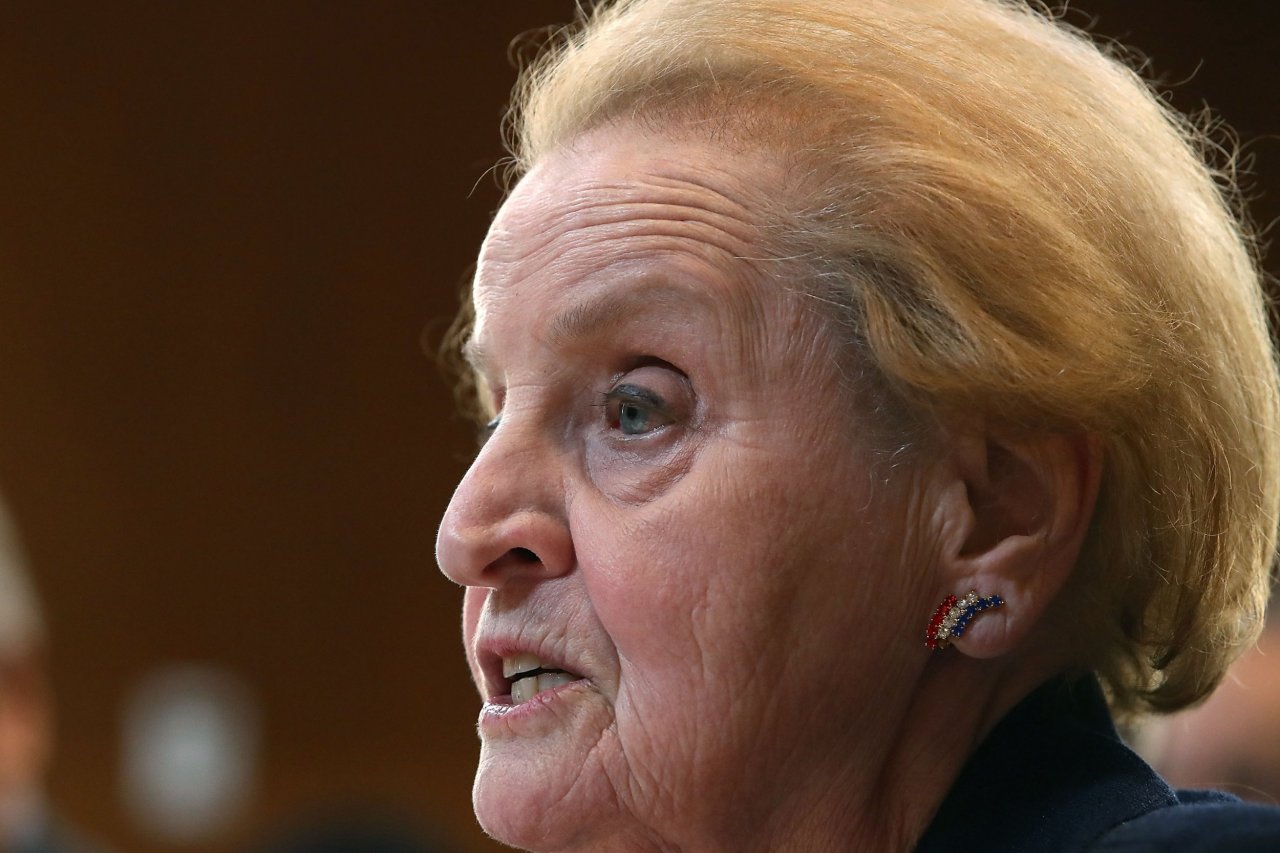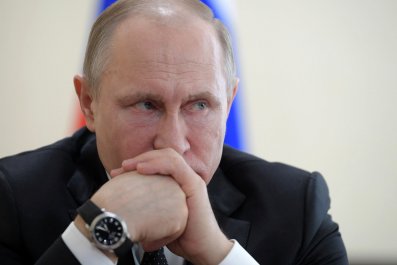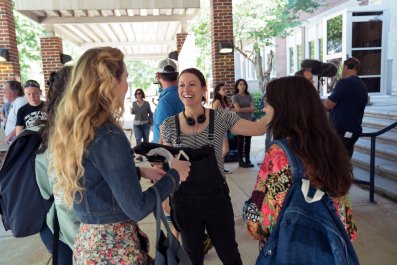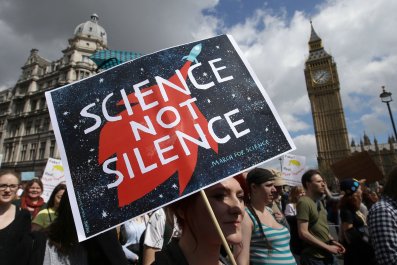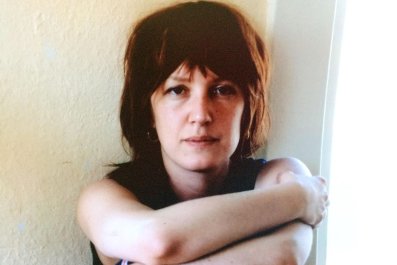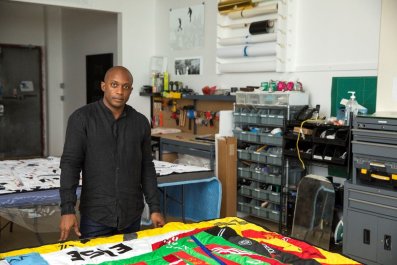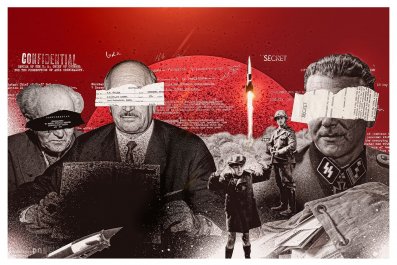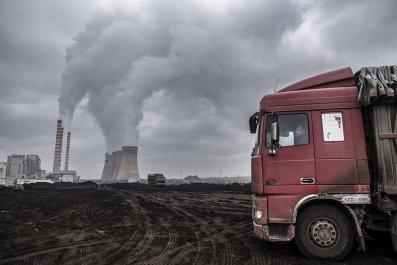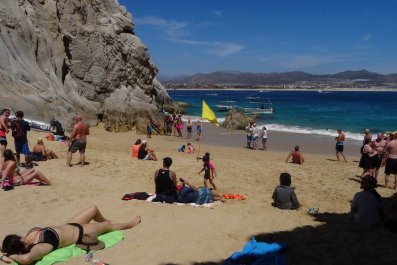In the wake of Donald Trump's election, a troubling word re-emerged in the American political lexicon: fascism. The left says the president mimics strongmen by attacking the media and targeting immigrants. The right claims liberals suppress dissenting views on everything from climate change to gender politics.
But is this really fascism? Few are in a better position to judge than former Secretary of State Madeleine Albright. Born in Czechoslovakia, she fled fascist regimes twice, first during the Nazi occupation of her home country in 1939 and then after a Communist coup a decade later. In her new book, Fascism: A Warning, Albright says she sees a revival of creeping nationalism and authoritarianism at home and abroad.
Albright does not consider Trump a fascist, but she says his behavior is paving the way for fascism around the globe. In her book, she studies the rise of past autocrats like Adolf Hitler and Benito Mussolini and finds similar patterns in modern leaders like Turkey's Recep Tayyip Erdogan, Hungary's Viktor Orbán and Russia's Vladimir Putin. The result is an in-depth look at a changing world order and America's diminishing role in that hierarchy.
I spoke with Albright, currently a professor of diplomacy at Georgetown University's School of Foreign Service, about Trump, Putin and what she describes as an international fraternity of "bullies."
In your book, you write that the term fascism has lost its meaning.
People kind of think, OK, well, everything I disagree with is fascist—which is crazy. A fascist is someone who claims to speak for a whole nation or group, is utterly unconcerned with the rights of others and is willing to use violence and whatever other means to achieve the goals. In short, a fascist is a bully with an army.
What are some of the key "warning" signs, as you call them?
First of all, there's an appeal to extreme nationalism. We've seen that in Europe, Turkey and, to some extent, in the United States. There's this "us against them" mentality, the disregard for the rights of others and a display of popular enthusiasm through rallies. Then there's relentless propaganda, which is really an attempt to shape one's own truth.
Is the United States vulnerable to modern-day fascism?
If you look at this historically, fascism can find a foothold wherever people are unhappy and are looking for answers. We obviously have very strong democratic institutions, but I think that there are real questions in terms of how the government is responding to the needs of the people at this moment. That's why this book is a warning.
How does President Trump fit into this picture?
Let me make this absolutely clear: I'm not calling President Trump a fascist. I am very concerned about his lack of democratic instinct of any kind and his disdain for the press and the judiciary and the electoral process.
Are his actions contributing to the rise of fascism around the globe?
There are fascists in other countries who are taking some of the things that President Trump says in order to justify their own behavior. Instead of the U.S. being the leader in democratic values and the leader of the free world, the bottom line is [there's] an empty chair there.
Whether you're talking about [Philippine President Rodrigo] Duterte, Orbán or Putin, these people are a bunch of bullies. The president praising some of the aspects of those people, identifying with them, gives them even more strength. When he was in Poland, standing next to [Polish President Andrzej Duda], [his remarks] not only strengthened the anti-democratic things that are going on in Poland, but kind of gave [them] an American blessing, which is outrageous.
Are you worried about war with North Korea?
It concerns me a lot. I'm still the highest-level sitting official to have met with the North Korean leader. It takes a lot of work and preparation, and you need experts to understand what the background of a particular issue has been and what to push for, what to avoid. From what I can tell, that has not taken place.
Is Putin trying to dismantle democracy in the West?
He's trying. You can't forget that we're dealing with a KGB agent. This is what Putin grew up on. He is not stupid. He's smart, and he's playing a weak hand very well.
Are you concerned about more Russian interference in American elections?
I am. We need to have the [congressional] investigations [into Russian meddling] go forward, not kind of say, "It's not happening." We have an opportunity to stop what is going on. And it isn't just the president. It's on all of us to have people run for office, to voice our displeasure, to really take active measures in terms of pushing back to show what democracy is really about.
What do you make of the antifa movement?
I don't think one should fight fascism with violence. Violence is a tool of the fascist.
What does President Trump's "America first" agenda mean to you?
It's an unfortunate term from the '30s when the United States cared only about itself and was isolationist, and things got worse and worse [globally]. This is a very personal thing for me, as somebody who was born in Czechoslovakia. The British and French made a deal with the Germans and Italians and sold the country I was born in down the river. The United States wasn't there.
[Today], President Trump makes us look like a victim, a chump. We have the most powerful country in the world, and his whole message is about victimization. "Everybody's taking advantage of us." It's ridiculous.
What's the future of the U.S. on the world stage?
It's going to take a while to rebuild trust in America and our alliance structure and how we behave, but we have it in us to do that, and we have done it in the past. We are leaders.



